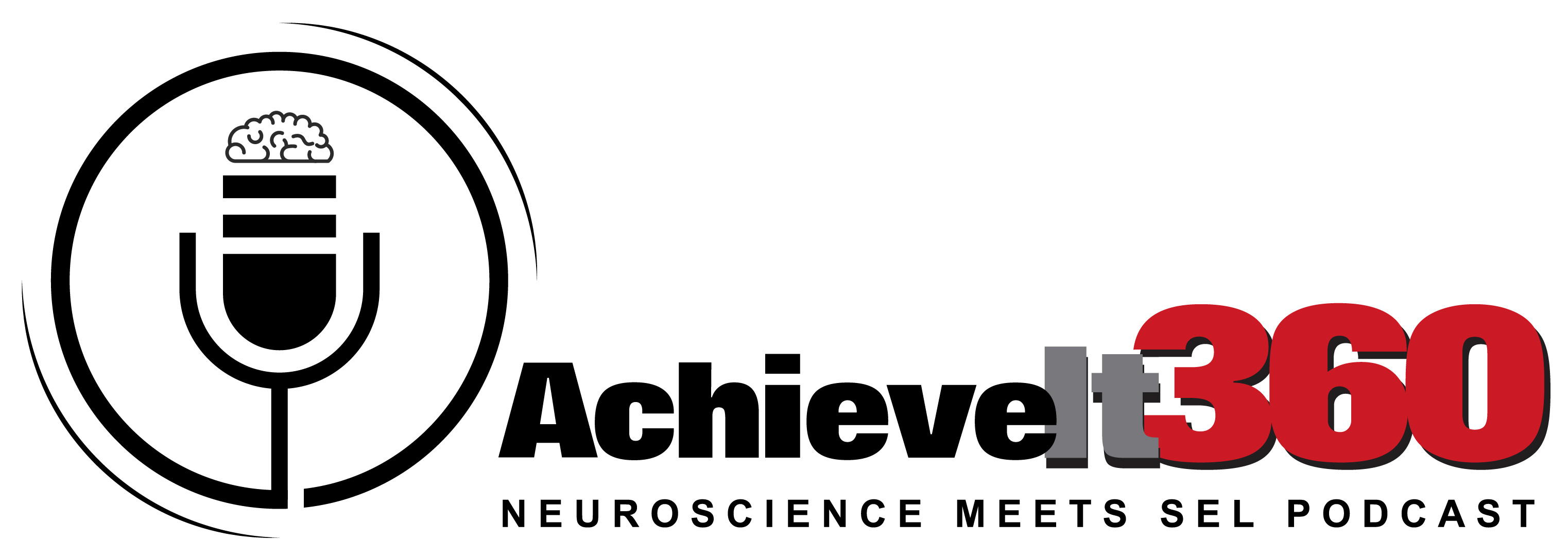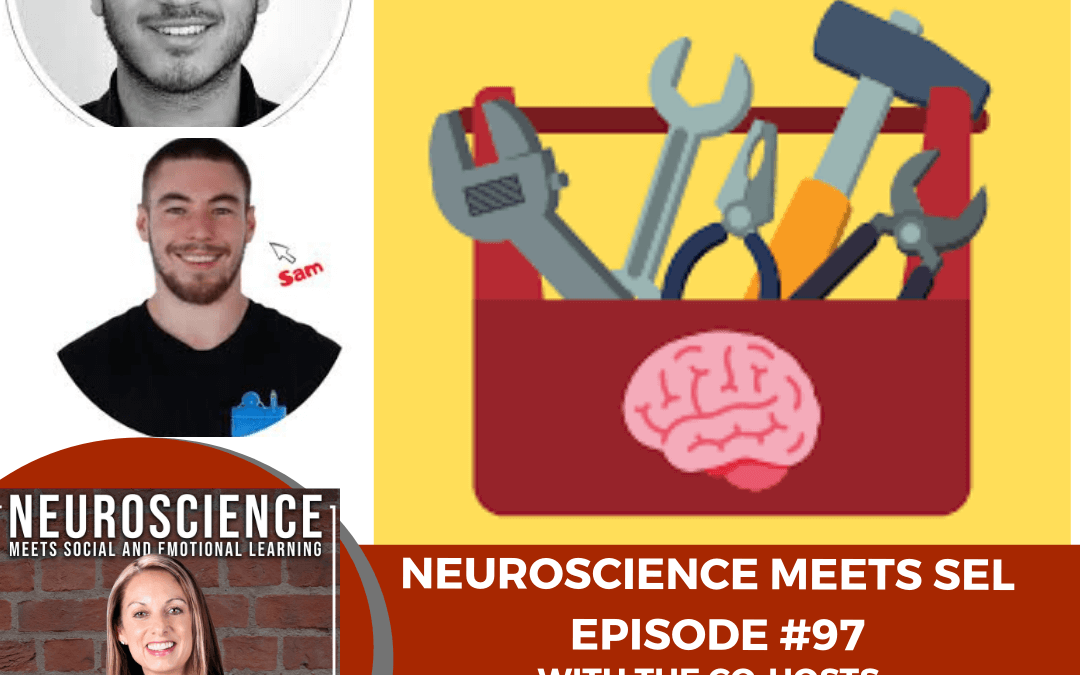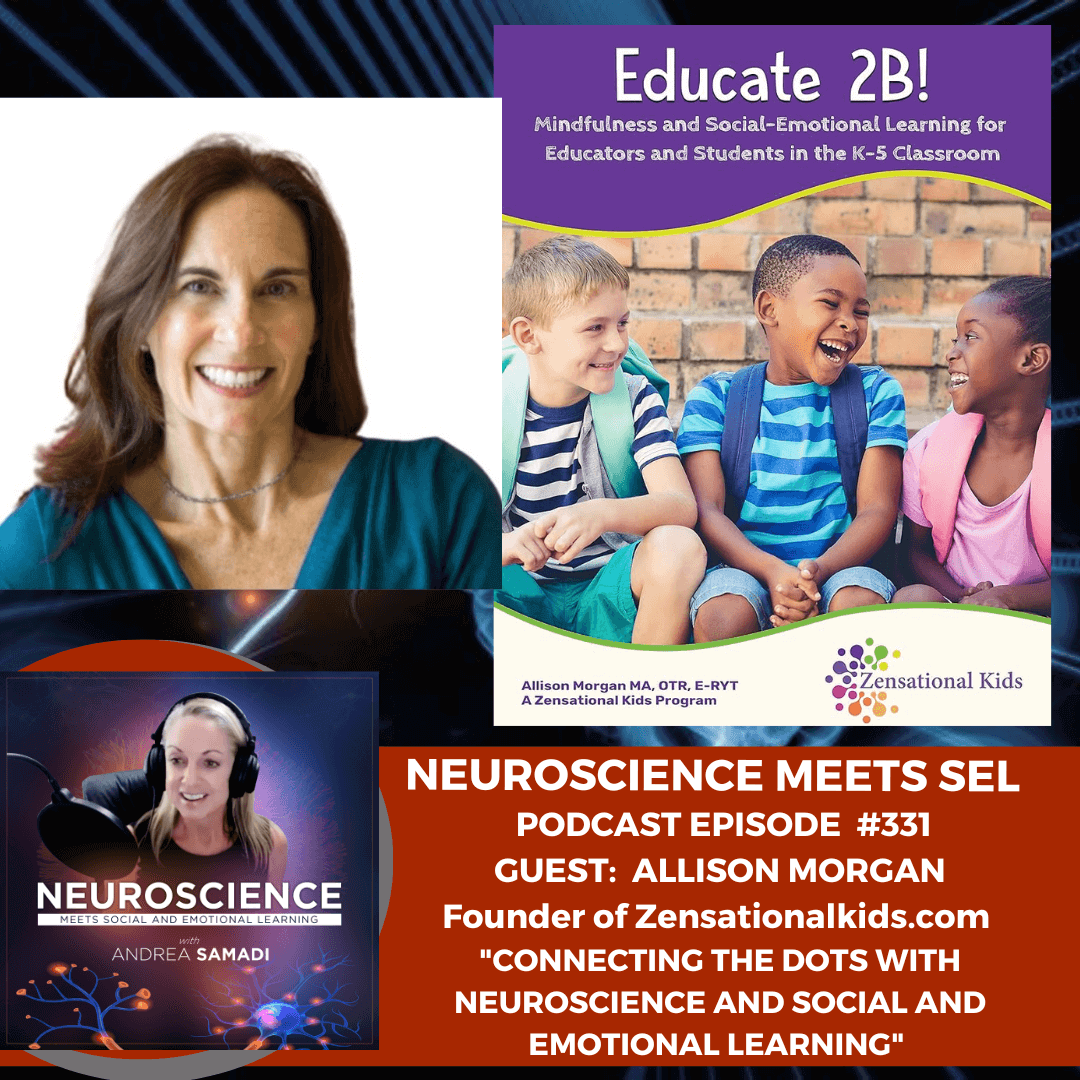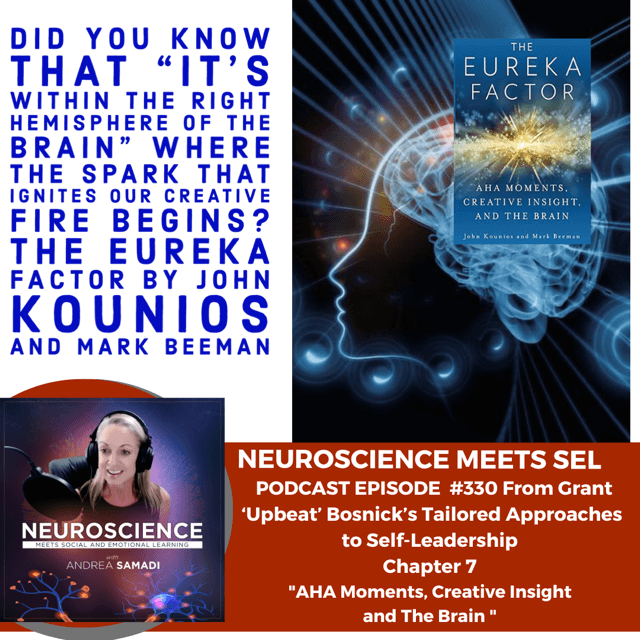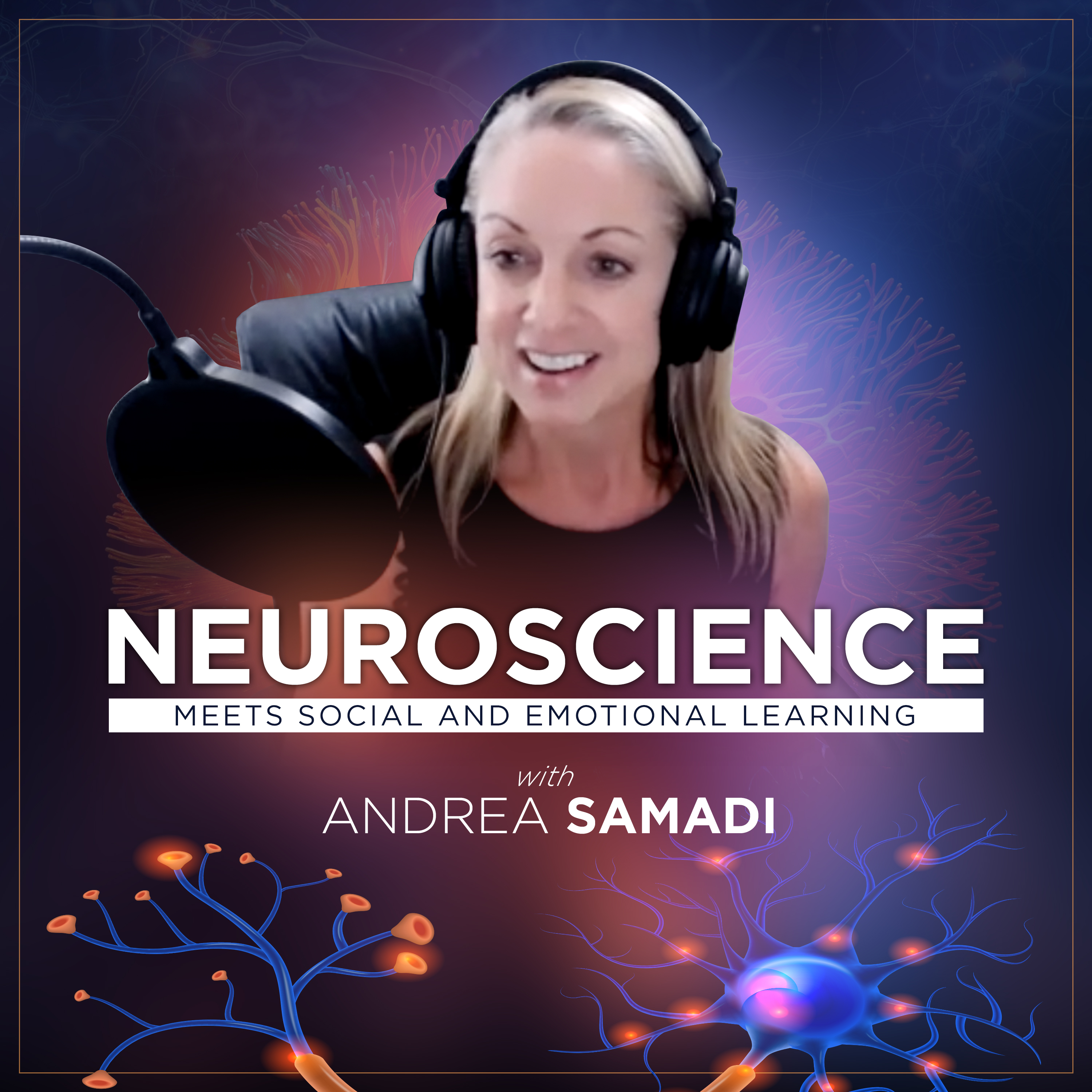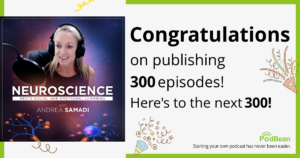Welcome back to the Neuroscience Meets Social and Emotional Learning podcast, episode #97 with Samuel Holston and Kirun Goy, the hosts of one of my favorite podcasts, Brain Tools[i] which focuses on practical brain science for everyday people. Samuel and Kirun provide engaging science-backed episodes to help you to learn how your brain works when it comes to sleep, stress, communication and so much more. What I love about their podcast that’s different from others (besides the fact that they are absolutely hilarious, while covering a very serious topic) is that they offer a regular episode, then they have a 20 minute break-out episode with 6 practical brain tools, or steps, that you will need to master, to be successful with the brain tip for that episode. It’s a great way to access the strategies quickly and easily, to ensure implementation.
Watch the interview on YouTube here.
I first met Samuel on LinkedIn, when we first connected last summer, and became immediate friends, with neuroscience and emotional intelligence in common. At that time, I had no idea just how much I would learn from their podcast, and that we would check back in with each other occasionally, offering ideas, suggestions, tips and encouragement for eachother. I learned that Samuel began studying neuroscience at age 15 and I immediately asked him to be a guest on our podcast. It took a few months, but they were finally ready, and I grabbed this opportunity to speak with them both today.
So here’s a bit about Samuel:
On top of being the co-host of the Brian Tools Podcast, he’s a freelance copywriter from Melbourne Australia. He says he’s not a scientist but has been obsessed with the brain (cognitive) science since he was 15 years old.
And a bit about Kirun:
In addition to being the co-host of the Brain Tools Podcast, Kirun Goy is the Director of Elevate Education where he co-founded the Singapore branch that helps over 40,000 students each year across 10 countries in Asia with workshops and online courses focused on improving learning skills.
This is Andrea Samadi, on the Neuroscience Meets Social and Emotional Learning Podcast and I’m excited to welcome both Samuel Holston (located in Australia) and Kirun Goy (in Singapore) to the podcast today! How’s it going for you both?
Before I get to your questions, I would love to know how you both met. I am guessing at University of Melbourne? Once you answer that questions, I want to know how on the earth did you both decide to start your podcast Brain Tools?
Q1: For the past 2 months, I have been focused on health and the brain, especially after watching this documentary from Dr. Perlmutter called Alzheimer’s the Science of Prevention a few months ago, inspiring me to take a closer look at health as it relates to our results, knowing that there’s so many components to look at when it comes to improving our results. Now I know you are both way younger than me, and not yet worried about some of the things that pop into our minds when you are getting older, but tell me, why did you pick sleep as your FIRST episode? Sleep is one of the TOP 5 health staples[ii] that we know we must focus on for brain health and longevity. Why did you find it important to launch your podcast with[iii]?
Q2: Your second episode focuses on well-being[iv], and I think this is a hot topic these days. You list self-awareness as one of the tools for well-being, to understand what your stress response looks like. (When stressed, do you go into fight, flight, or freeze mode)? I just had someone suggest this strategy a couple of episodes ago, and I know that when I’m stressed, I pick up my shoes and find a mountain to run up, so I’m guessing that my stress response is flight…How would you encourage people to learn more about their stress style? Should we just ask our friends and family, hey, when I’m stressed, what exactly do I do?
Q3: From your episode on “Overcoming Fear[v]” I want to know, what happens at the brain level when we name our fear? I’ve said it 100 times on this podcast. Name it, to Tame it. Why does writing down the emotion or naming what we are feeling reduce the fear?
Q4: On your episode of “Making Habits Stick[vi]” you quote Albert Einstein who says that “compounding is the greatest mathematical discovery of all time.” Can you talk about the importance of building good habits and breaking bad ones?
Q5: What episode did this come from? This one was from “Your everyday addictions and Neuroscience.”[vii] It’s at the TOP of my notes page, but obviously something I learned from you and added later. Can you talk about how opioids are 1,000 x more dopamine than sex, what we would think to be the most pleasurable? I’d love to understand how we can perhaps monitor where we think we are for our daily dopamine levels, and find healthy ways to increase it, without turning us into drug addicts!
Q6: In your “Breaking Everyday Addictions” episode, can you talk about dopamine fasting and why it’s not at all effective? The crazy thing is that I had a twitter message from someone I hadn’t heard from in years, asking this specific question. He’s a tech guy and sent me a link to an article about Silicon Valley companies that are encouraging tech breaks. Why do tech break not work with our brain in mind?
Q7: Was your relationships and dating apps episode[viii] really your most downloaded episode? What happens to our brain when we are in love, and why do you think this episode was so popular over the past few months?
Q8: Thanks so much for the shout out in your last episode on taming your emotions with brain science[ix]. I was listening to this episode and taking notes, because taming my emotions is something I’m always working on, especially with raising 2 kids, and trying to live by example and I can lose it at times when the pressure hits. I was caught off guard when you quoted me in this episode, but then thought, well, I’ve definitely improved over the past 5 years with the practice of meditation. I had to create a graphic about what you said, to “stop the loop and create a pause because your brain becomes impaired when angry” and people loved this graphic. Why is this pause so important at the brain level for us to stay in control of our emotions?
Kirun and Samuel, I could talk to you all night, but know I’ve got to let you both get back to work. I want to thank you both so much for your time today, and will continue to listen and share your podcast moving forward.
For those who want to follow your podcast, what’s the best way?
ITunes and Spotify Just type in BrainTools
https://podcasts.apple.com/au/podcast/braintools/id1523655668
https://open.spotify.com/show/6n5wcgjhkf7RR84ZXtYVrX
For those who want to follow you, what’s the best way?
Brain Tools on LinkedIn https://www.linkedin.com/company/braintools/
Kirun Goy on LinkedIn https://www.linkedin.com/in/kirungoy/
Samuel Holston on LinkedIn https://www.linkedin.com/in/samuel-holston/
REFERENCES:
[i] Brain Tools Podcast with Kirun Goy and Samuel Holston https://pod.casts.io/podcasts/brain-tools
[ii] Neuroscience Meets Social and Emotional Learning EPISODE #87 https://andreasamadi.podbean.com/e/do-you-know-the-top-5-brain-health-and-alzheimers-prevention-strategies-with-andrea-samadi/
[iii] Brain Tools Podcast EPISODE #1 “Sleep Deep with Neuroscience” https://pod.casts.io/podcasts/brain-tools/episodes/sleep-deep-with-neuroscience-braintools
[iv] Brain Tools Podcast EPISODE #2 “Destress Your Wellbeing with Neuroscience” https://pod.casts.io/podcasts/brain-tools/episodes/destress-your-wellbeing-with-neuroscience-braintools
[v] Brain Tools Podcast EPISODE #3 “Mastering Fear with Neuroscience” https://pod.casts.io/podcasts/brain-tools/episodes/mastering-fear-with-neuroscience-braintools
[vi] Brain Tools Podcast EPISODE #4 “Form Habits that Stick with Neuroscience” https://pod.casts.io/podcasts/brain-tools/episodes/form-habits-that-stick-with-neuroscience-braintools
[vii] Brain Tools Podcast EPISODE #5 “Breaking Everyday Addictions” https://pod.casts.io/podcasts/brain-tools/episodes/your-everyday-addictions-and-neuroscience-braintools
[viii] Brain Tools Podcast EPISODE # 6 “Love, Tinder and Neuroscience” https://pod.casts.io/podcasts/brain-tools/episodes/love-tinder-and-neuroscience-braintools
[ix] Brain Tools Podcast EPISODE #14 “Taming Your Negative Emotions with Brain Science” https://pod.casts.io/podcasts/brain-tools/episodes/taming-your-negative-emotions-with-brain-science-braintools
Podcast: Play in new window | Download
Subscribe: Apple Podcasts | RSS
